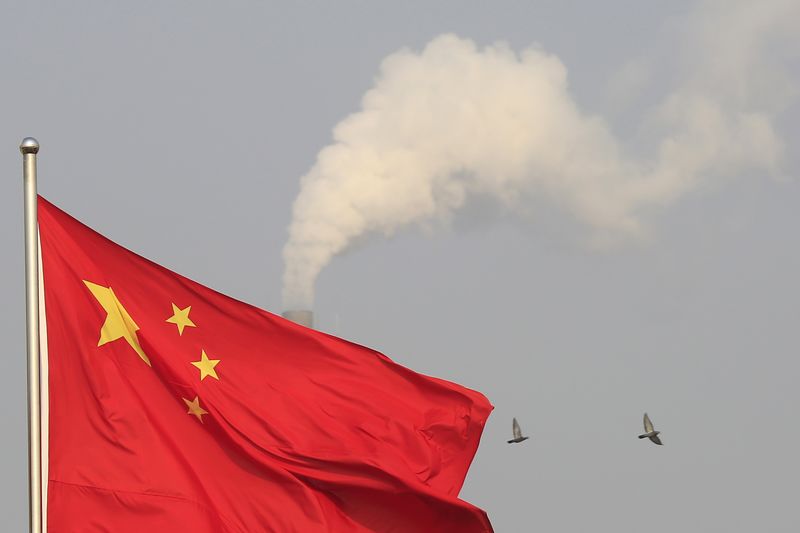(Bloomberg) -- China’s economy is refusing to slow down without a fight.
That’s the picture that emerges this month from a new gauge of economic activity developed by Fielding Chen at Bloomberg Economics, which aggregates the earliest available indicators into one reading for the first time.
While an ongoing campaign to curb financial excess and deflate property bubbles is taking its toll on some parts of the economy, the damage is being mitigated by industry benefiting from increased pricing power and the recent strength of global trade, the dashboard shows.
The dashboard brings together eight readings from China’s trade partners, smaller businesses, sales managers, real estate, stocks and commodities to give an under-the-hood look at activity in the world’s second-largest economy, independent from -- and before -- the official data.
The gauge is based on the three-month weighted average of the changes of these indicators, smoothing out volatility in the single-month readings. A full dashboard, with five additional indicators, including the official purchasing manager indexes due May 31, plus South Korea exports, will be available from Bloomberg Economics early next month.
A moderation in the pace of growth for the world’s second-largest economy has been on the cards for some time, given 2017’s out-performance and the short-term costs of the effort to clean-up the financial sector. On the back of that concern, policy makers have acted to reassure that growth won’t slow too sharply, with the People’s Bank of China cutting reserve requirements in April.
Combined PMI reports from the European Union, the U.S. and Japan point to a moderate slowdown, as do prices of real estate stocks and iron ore. Meanwhile, a survey of smaller companies and a tracker of factory inflation are still holding up.
Corporate profitability is also a bright spot that could carry momentum in the economy for longer than anticipated. Industrial profit growth accelerated to 21.9 percent in April from a year earlier. That, plus signs that leading trade indicators like South Korea exports are headed for a strong performance, create some room for optimism.
Here are the full details on the dashboard’s dials:
- Sales Mangers Index based on a survey by London-based World Economics Ltd. -- the earliest available such indicator
- Standard Chartered (LON:STAN) Plc’s Small and Medium Enterprise Confidence Index based on a monthly survey of hundreds of smaller companies nationwide
- A weighted average of the flash PMI readings of trade partners including the U.S., European Union and Japan; the reading signals demand for China’s shipments
- Month-on-month change of the real estate sector index of the CSI 300, highlighting the sentiment of the industry, a pillar of demand
- Bloomberg Economics’ producer price index tracker, which updates daily based on commodity price readings
- Month-on-month change of copper prices
- Month-on-month change of iron ore prices -- these reflect the strength of manufacturing and other activity
- Month-on-month change of the CSI 300 -- major stocks listed in Shanghai and Shenzhen
Economists surveyed by Bloomberg see a 6.5 percent expansion this year after 6.9 percent in 2017, in line with the government’s own target.
The early indicators offer signals of a slowdown underway, not a definitive account. Factories might still be humming along, even while demand from the property sector and the rest of the world starts to lose steam. Industrial indicators for April surprised to the upside, though trade indicators in the month’s PMI readings softened.
The dashboard data based on real-time market prices and business surveys depict more of the on-the-ground situation in the private sector, while the official gauges tend to lean towards the state sector, Chen said.
“The surprising strength in factory activities in April may not be sustained a few months down the road,” Chen said, adding that the activities will be more in line with the slowing property, infrastructure and consumption demand. “We are expecting a gradual slowdown this year.”
To contact Bloomberg News staff for this story: Xiaoqing Pi in Beijing at xpi1@bloomberg.net;Adrian Leung in Hong Kong at aleung206@bloomberg.net
To contact the editors responsible for this story: Jeffrey Black at jblack25@bloomberg.net, James Mayger
©2018 Bloomberg L.P.
